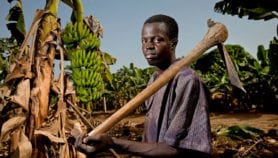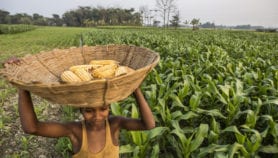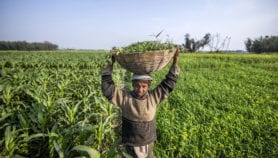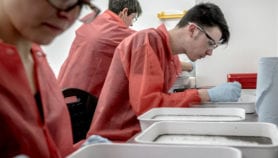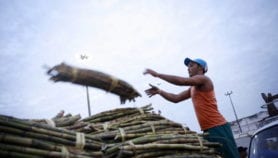By: David Dickson
Send to a friend
The details you provide on this page will not be used to send unsolicited email, and will not be sold to a 3rd party. See privacy policy.
A new initiative has been launched to provide researchers and academics in some of the world's poorest countries with free or low-cost access to scientific literature in food, nutrition, agriculture and related biological, environmental and social sciences.
The initiative was announced today (14 October) in Rome by the UN's Food and Agricultural Organisation (FAO) and a range of public and private sector partners.
Known as AGORA (Access to Global Online Research in Agriculture), it will provide access to more than 400 key journals in these fields, with the long-term goal of increasing the quality and effectiveness of agricultural research and training in low-income countries.
The FAO describes the need for access to current scientific information as "a daily struggle" for thousands of students, researchers and academics. The result, it says, is that many researchers and academics find it difficult to publish their findings in peer-reviewed journals, update their teaching curricula and identify funding.
"FAO is committed to strengthening capacity for knowledge generation and dissemination as a contribution to achievement of the goals of the International Alliance Against Hunger and as a follow-up to the World Food Summit," says Anton Mangstl, Director of FAO's Library and Documentation Systems Division.
"By bringing together bilateral agencies, UN agencies, private foundations and international scientific publishers, AGORA demonstrates that the public and private sectors can work together to build greater momentum towards building a world without hunger."
The founding publishers of AGORA are Blackwell Publishing, CABI Publishing, Elsevier, Kluwer Academic Publishers, Lippincott, Williams & Wilkins, Nature Publishing Group, Oxford University Press, Springer Verlag, and John Wiley and Sons. Additional publishers will be invited to participate in AGORA over the coming months.
Funding and support is also provided by Cornell University Mann Library, Rockefeller Foundation, the UK Department for International Development and the US Agency for International Development.
"There can be few things more satisfying to a scientific publisher than to contribute to a practical programme to make valuable information easily available in places where it will be used to improve health, nutrition and education of the world's poor," says Eric Swanson, senior vice-president of John Wiley and Sons, Inc, and chair of the International Association of Scientific, Technical and Medical Publishers.
"This is major step forward in the improvement of agricultural research and food security worldwide," says Peter Hendriks, CEO of Kluwer Academic Publishers. "Researchers, policy-makers, librarians, educators and students will now have access to a wealth of imperative information that the majority would never have been able to afford otherwise."
The AGORA website is based on tools and systems developed by the World Health Organisation for a similar service in health called HINARI. Potential users will be required to register with the FAO, and access will be password controlled, and restricted to qualifying not-for-profit institutions in eligible countries.
According to the FAO, access is likely to be free for institutions in most countries where the annual per capita Gross National Product (GNP) is US$1,000 or less. However the FAO adds that special conditions may apply in a small number of cases, where institutions will not be eligible for some or all of the content.
According to one of the publishers involved (Kluwer), the following countries will have access to its content through AGORA: Afghanistan, Albania, Angola, Armenia, Azerbaijan, Bhutan, Burkina Faso, Burundi, Cambodia, Cameroon, Central African Republic, Chad, Comoros, Congo, Côte d'Ivoire, Democratic Republic of Congo, Djibouti, Eritrea, Gambia, Georgia, Guinea, Guinea-Bissau, Guyana, Haiti, Kiribati, Kyrgyzstan, Lao People's Democratic Republic, Lesotho, Liberia, Madagascar, Malawi, Mali, Mauritania, Mongolia, Mozambique, Myanmar, Nepal, Nicaragua, Niger, Papua New Guinea, Republic of Moldova, Rwanda, Sao Tome and Principe, Senegal, Sierra Leone, Solomon Islands, Somalia, Tajikistan, Timor-Leste, Togo, Tokelau, Turkmenistan, Tuvalu, United Republic of Tanzania, Uzbekistan, Vietnam and Yemen.
For more details, contact: [email protected]






